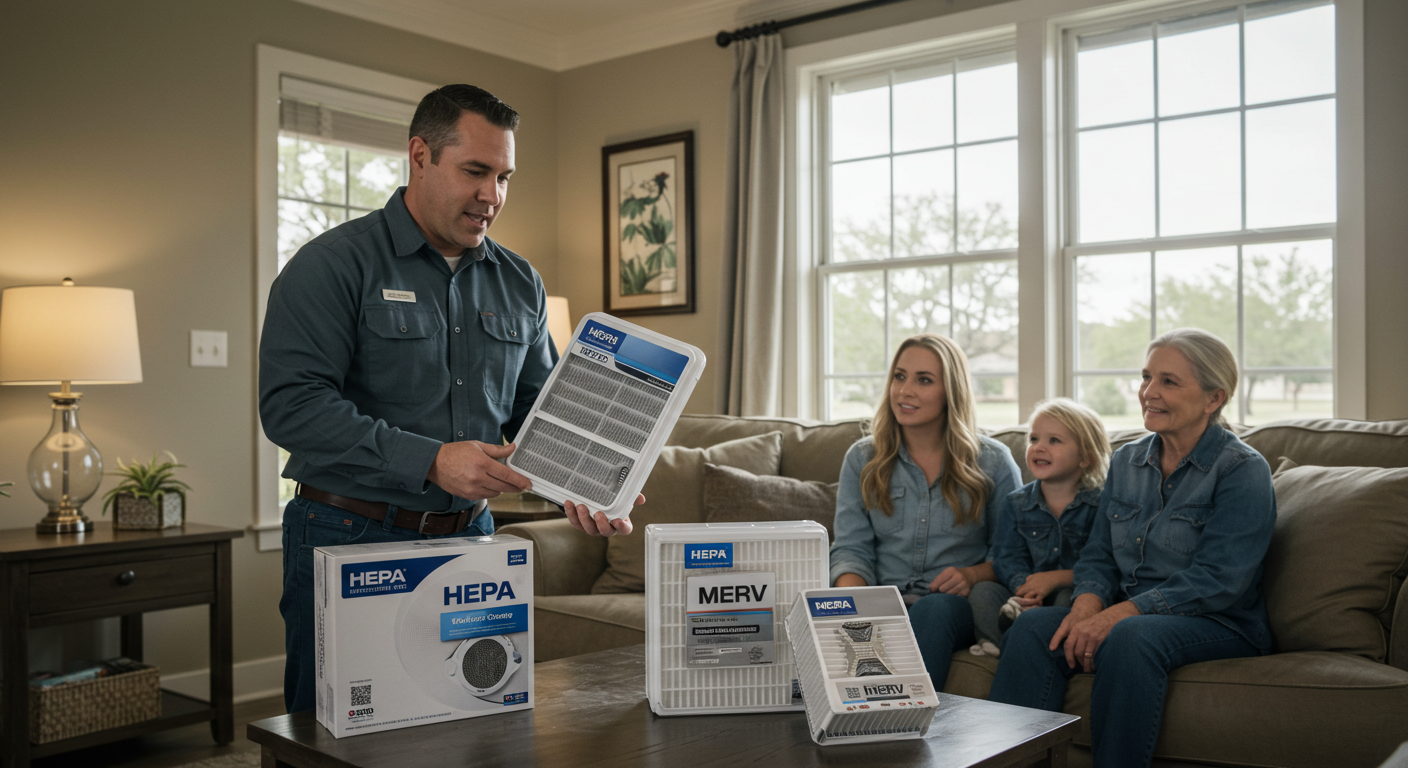What Causes Short Cycling in an HVAC System?
Learn the top causes of HVAC short cycling and how to fix this common issue before it damages your AC or furnace.

Texas homes face special air quality challenges. From high pollen counts in spring to dust drifting in from open fields, the air outside — and inside — can be tough on your lungs. That’s why choosing the right air filter isn’t just about keeping your HVAC system clean; it’s about protecting your family’s health. Two common options you’ll hear about are HEPA filters and MERV-rated filters. But which is actually best for your Texas home?
If you’re not sure, you’re not alone. Many Texas homeowners reach out for help understanding the differences, which is why we’re breaking it all down here.
MERV stands for Minimum Efficiency Reporting Value, which is a scale developed by ASHRAE (the American Society of Heating, Refrigerating and Air-Conditioning Engineers). It measures how well an air filter can catch particles of different sizes.
Here’s what you should know:
It’s important to note that installing a filter with too high a MERV rating can actually restrict airflow. This could cause problems like frozen AC coils or a struggling blower motor. That’s why it’s best to consult an expert before making a switch.
(If you’re curious about how to keep your HVAC system healthy overall, check out our guide on seasonal HVAC maintenance for Texas weather.)
HEPA stands for High Efficiency Particulate Air, and these filters are serious business. They capture 99.97% of particles down to 0.3 microns, making them popular in hospitals and labs.
But here’s the catch for homeowners in Texas (or anywhere, really):
If your primary goal is to reduce allergens or you have family members with respiratory conditions, it may be worth discussing HEPA options. Otherwise, a properly selected MERV filter can be a simpler, more budget-friendly solution.
If you’re weighing the two, here’s how they compare in plain terms:
For most Texas homes, a MERV 8 to 13 filter strikes the right balance, capturing everyday dust and allergens while still keeping your HVAC system running smoothly.
Here in Texas, we deal with everything from cedar pollen to dust storms. For most households, a MERV 8 to 13 pleated filter offers the best mix of protection and system performance. If allergies are a big concern or you have pets that shed, leaning toward MERV 11 or 13 is smart.
If you’re thinking about a HEPA-level filtration setup, it’s best to talk with a pro about adding a dedicated system or air purifier. That way, you get all the benefits without stressing your existing HVAC.
Want help choosing the right filter? Our team at Air Techs Heating & Cooling is here to walk you through it.
Every home — and every HVAC system — is a little different. Before making any upgrades, it’s a good idea to schedule an inspection. At Air Techs Heating & Cooling, we can:
We also offer affordable maintenance agreements that include filter checks, system tune-ups, and priority service.
Clean air matters for your family’s comfort and your HVAC’s lifespan. Whether you’re sticking with a high-quality MERV filter or exploring a HEPA solution, it’s always worth talking to a professional first.
Ready to improve your home’s air? Schedule an appointment today and we’ll help you breathe easier in your Texas home.